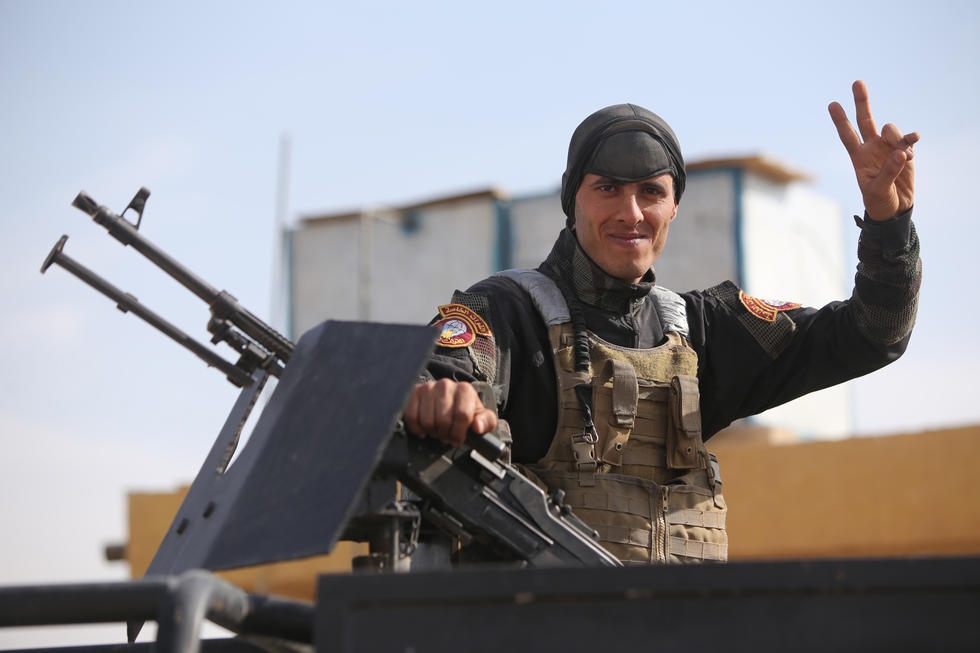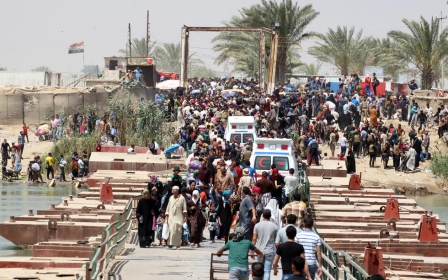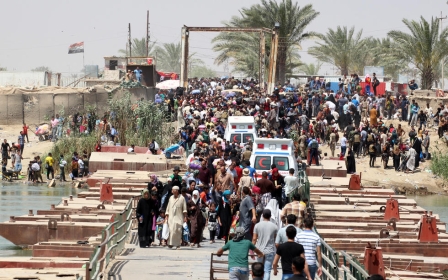Iraq PM rebuts US criticism of security forces

By Jean Marc Mojon
Iraq on Monday rejected accusations by the US defence chief that its security forces dodged battle in Ramadi and lack the will to fight the Islamic State group.
Pentagon chief Ashton Carter argued that the 17 May fall of Ramadi, the worst defeat Baghdad has suffered in almost a year, could have been avoided.
“We have an issue with the will of the Iraqis to fight IS and defend themselves,” he told CNN on Sunday.
Washington has been one of Baghdad’s key partners in the war to reclaim the ground lost to IS last year and Iraqi Prime Minister Haider al-Abadi expressed disbelief at Carter’s stinging comments.
“I’m surprised why he said that. I mean, he was very supportive of Iraq. I am sure he was fed with the wrong information,” Abadi told the BBC.
A senior Iranian general involved in the fight against IS hit out at Washington, saying it had failed to help Iraqi forces in Ramadi despite its military presence at the al-Asad air base in the same province.
“How can you be in that country under the pretext of protecting the Iraqis and do nothing? This is no more than being an accomplice in a plot,” said Qassem Suleimani, the Revolutionary Guards’ commander of foreign operations.
Iran has military advisers in Iraq and Syria and provides financial and military support to the governments of both countries in their battle against Sunni hardliners.
The loss of Ramadi, capital of Iraqi’s largest province Anbar, raised questions over the strategy adopted not only by Baghdad but also by Washington to tackle IS.
Months of air strikes and the deployment of advisers to reform and train the security forces have failed to keep up with IS’s aggressive tactics.
“Secretary Carter’s remarks are surprising and likely to negatively affect the moral of the ISF,” Iraq analyst Ahmed Ali said, referring to Iraqi security forces.
Ali, a visiting senior fellow at the Education for Peace in Iraq Centre, argued there were several examples of Iraqi forces showing plenty of grit and cited the Baiji refinery, where elite troops have repelled relentless IS attacks for months.
Ramadi fightback imminent
Ahmed al-Assadi, spokesman of the Hashed al-Shaabi umbrella organisation for Shiite militia and volunteers which Abadi reluctantly called in after Ramadi’s fall, reacted angrily to Carter’s comments.
“This lack of will the US defence secretary mentioned is how the enemies of Iraq tried to depict the Iraqi security forces,” he told AFP.
An Iraqi military commander in Anbar described Carter’s comments as “a provocation to the Iraqi army and Iraqi people designed to make people lose their trust in the army.”
The government has nonetheless admitted to shortcomings, vowing to investigate the chaotic retreat from Ramadi and punish their “recalcitrant” fighters.
After a year of fighting and despite a string of territorial losses, IS’s will to fight on the other hand was never really a doubt.
IS is a trim fighting force which has time and again displayed great tactical skill and whose men see death on the battlefield as the ultimate reward.
Abadi and Washington had hoped to keep the Hashed and its Iranian-backed militia out of the Sunni stronghold of Anbar.
But the collapse of the security forces during the fall of Ramadi was seen by most as evidence that Baghdad could not afford to do without the Hashed’s determination to fight and sheer numbers.
“It makes my heart bleed because we lost Ramadi but I can assure you we can bring it back soon,” Abadi told the BBC.
Palmyra violence
Iraqi regular forces backed by the Hashed and Sunni tribal fighters from Anbar have begun clawing back land east of Ramadi over the past few days.
Abadi said a major counteroffensive in Anbar would be launched in a matter of days.
The capture of Ramadi together with the IS takeover of Palmyra in eastern Syria last week has consolidated their grip on the heart of their self-proclaimed caliphate.
IS fighters in different parts of Syria’s Homs province have executed 67 civilians and 150 members of government forces since 16 May, according to the Syrian Observatory for Human Rights.
Observatory director Rami Abdel Rahmad said whole families had been executed, including children with their parents, after Syrian state media said IS had carried out a “massacre” in Palmyra, slaughtering some 400 civilians.
Syrian government aircraft launched at least 15 strikes in and around Palmyra on Monday, the Britain-based monitor reported.
It said at least four civilians had been killed in the raids, which were the most intense since IS overran the city on Thursday.
New MEE newsletter: Jerusalem Dispatch
Sign up to get the latest insights and analysis on Israel-Palestine, alongside Turkey Unpacked and other MEE newsletters
Middle East Eye delivers independent and unrivalled coverage and analysis of the Middle East, North Africa and beyond. To learn more about republishing this content and the associated fees, please fill out this form. More about MEE can be found here.




